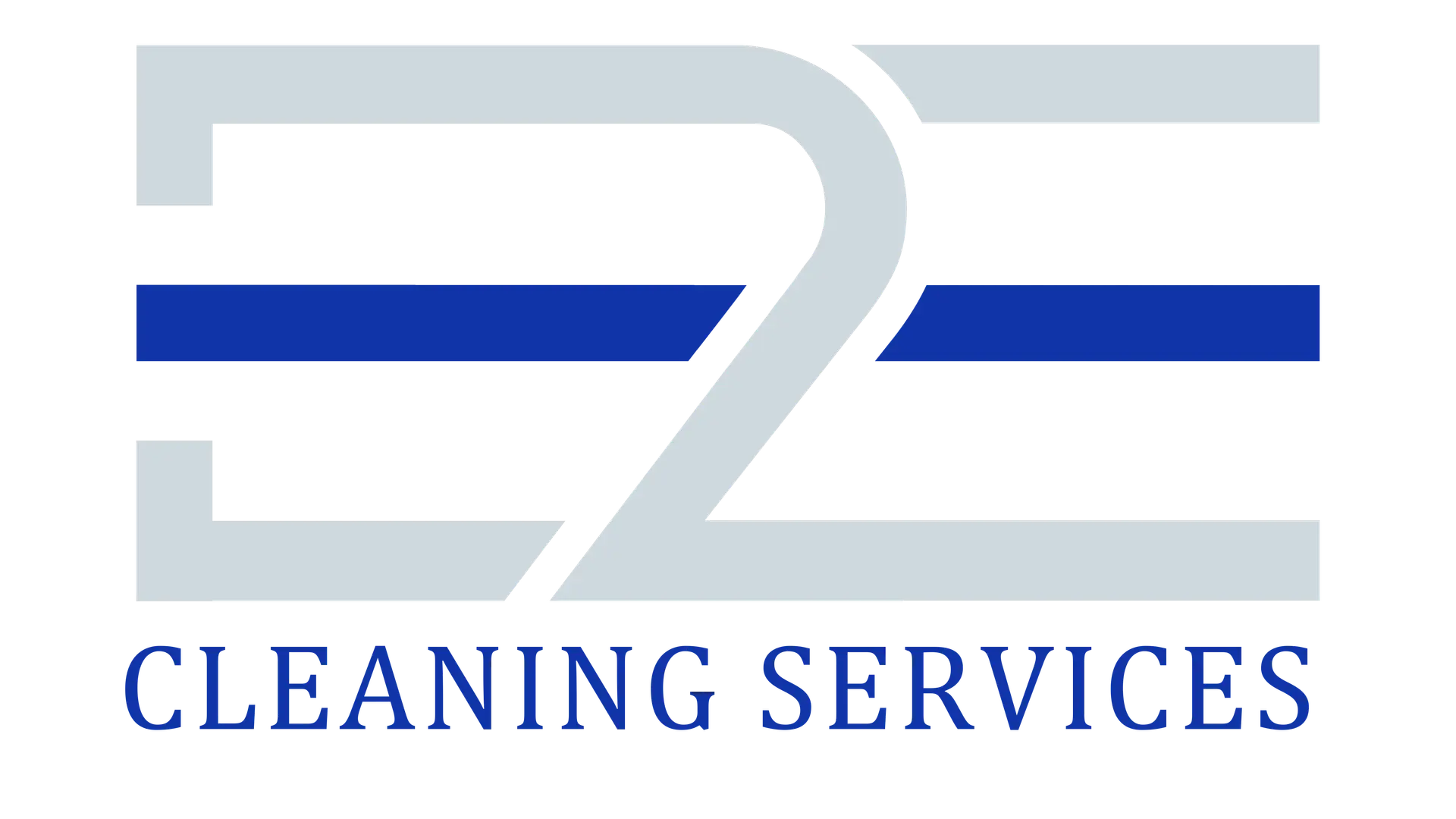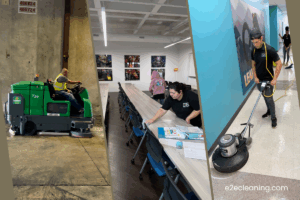In this overview, we take a look at optimal office cleaning frequencies in Florida as it relates to the state’s challenges to the climate, and how different businesses have unique needs and budget.
Based on industry based knowledge, we analyze daily, weekly and monthly cleaning approaches, contrast day porter and janitorial services, providing provide practical recommendations to Facility Managers and business owners on moving to a cleaning approach that is geared to effectively cleaning while being cost effective.
The Florida Office Cleaning Challenge
Office cleaning and maintenance in Florida require different techniques regarding the special challenges fo the state. The area is known for humidity of over 75% all year which lets mold thrive, gathers dust more quickly and makes office materials wear down fast.
Cleaning requirements can differ in places such as Miami, Orlando and Tampa because visitor numbers often increase facility usage by up to 40% in the high season.
As a result of hurricanes, Florida property owners often have to do deep cleaning to prevent mold and fix water-related problems. A recent review by the Florida Department of Health suggests that offices not following proper cleaning procedures notice 27% more employee airway complaints compared to places with appropriate maintenance.
A facility cleaning should address both your short-term hygiene needs and the longer-term protection of the place. A good cleaning plan for Florida offices will use national recommendations differently, as the design needs to account for higher humidity, seasons and greater concerns about allergies.
Cleaning the facility should address both your short-term hygiene needs and the longer-term protection of the place. The most effective cleaning programs for offices in Florida are adjusted based on local needs, including humidity, busy seasons and higher levels of allergens.
It is important for business owners to look at both the timing and the scope of cleaning, as the wrong schedule may result in loss of resources and safety concerns.
Understanding Different Cleaning Frequencies
Daily Cleaning: Benefits and Implementation
Regular cleaning is the basis for keeping an office clean and hygienic. The focus of this frequency is on surfaces and places that pathogens can spread more easily. A study done at the University of South Florida showed that regular cleaning can reduce germs on objects by about 80% more than cleaning those surfaces only every other day.
Usually, a detailed daily cleaning routine covers the following:
- Disinfection of doorknobs, elevator buttons, light switches, and communal equipment
- Restroom sanitization, including fixture cleaning and supply replenishment
- Waste removal and recycling management
- Spot cleaning of visible spills and stains
- Entrance area maintenance to reduce tracked-in contaminants
Even though hygiene is essential, offices in Florida gain much more from daily cleaning. Eliminating any water-holding debris helps stop mold from forming which is especially necessary in the state of sun where moisture in the air creates an ideal spot for mold to develop.
However, the timing and scope of cleaning services require careful consideration. Morning cleaning ensures offices are pristine before employees arrive, but this schedule may leave end-of-day debris unaddressed until the following morning.
Weekly Cleaning Elements and Considerations
Offices that do not see lots of traffic or have limited resources can use weekly cleaning schedules. Since cleaning tasks of this kind usually don’t need doing every single day, setting a weekly schedule helps them be completed before a longer break.
Good weekly cleaning plans require the following tasks:
- Taking care of the whole floor by vacuuming carpets and washing hard tiles
- Dust all the workstations well even in the hard-to-reach parts
- Recuperation and sanitization within conference rooms
- Detailed kitchen/break room cleaning with appliance exteriors
- Removing marks and smudges from glass and partitions
Weekly plans in Florida need to be matched with approaches meant for high humidity. You should check and clean air vents, allowing no place for mold to grow and coat vulnerable sections of the facility with moisture-resistant paint.
Organizations that operate on a weekly basis should perform daily quick cleaning on surfaces that many people touch, especially during flu season and when tourists visit in large numbers.
Many companies find weekly cleaning appealing because it helps reduce their costs by about 25-35% more than daily service. Still, facility managers should understand that parked cars may look less clean in between services, mainly in crowded areas or when the weather is humid.
Prepare for peak traffic season. Boost your cleaning frequency. Click Here
Monthly Deep Cleaning Approaches
Deep cleaning done regularly handles issues that form gradually and may not be noticed during normal cleaning. To prevent serious damage to your building over time and ensure good air inside, you´ll need a wide range of services.
Monthly deep cleaning should include key steps such as:
- Carpet extraction using hot water methods to remove embedded contaminants and address moisture retention
- Dusting the top of ceiling fixtures, various vents and the architecture is very important
- Antimicrobial treatments for all kinds of furniture and upholstery
- An appropriate finishing and protection for every type of surface
- Washing surfaces in the bathroom, including in the grout lines and difficult-to-reach areas
- The inspection of HVAC vents for the presence of mold
Because Florida´s humidity, it is important to treat moisture-related issues during monthly services. Look for mold in hidden places behind fixtures; check the strength of the building’s exterior wall and use special products and pressure washing to limit mold growth in vulnerable areas.
To address seasonal variations, cleaning protocols should be adapted throughout the year. During summer months when humidity levels peak, mold prevention becomes the primary focus, requiring enhanced moisture control and frequent inspection of potential problem areas.
Although cleaning your flooring once a month can be costly, it can prevent the need for more expensive repairs in the future. If these deep cleans aren’t performed often enough, organisations may find that their flooring finishes wear out quickly, requiring them to allocate more resources to carpet and furniture maintenance.
Day Porter Services vs. Traditional Janitorial Services
Differentiating between day porter services and traditional janitorial services is one of the most essential things to do when creating an office cleaning plan in Florida. The benefits of every approach are chosen to match a company’s priorities and its facilities.
Day porters are present throughout operating hours to quickly take care of issues that need attention. This model brings many important benefits that are especially useful for facilities on every business type.
- Immediate response to weather-related issues: Ensuring safety during rain, Day porters can handle any moisture brought into the facility by foot traffic right away, so mold does not have a chance to develop.
- Regular disinfection: This plays an important role when tourist seasons reach their peak due to having many different microbial strains.
- Constant maintenance of appearance standards: Occasional touch-ups are necessary in companies that deal with clients and those in competitive industries.
- Proactive humidity management: Handling moisture and condensation before they lead to cleaning problems.
Unlike the on-demand option, traditional janitorial cleaning usually visit during non-business hours as part of a schedule. With this cabinet, employees will not be disturbed and cleaning will happen efficiently, guided by a set of guidelines.
Offices in Florida usually require different touchpoints from janitors such as:
- Cleaning HVAC components better so mold cannot grow in the ventilation system
- Expert floor handling to address beache’s sand and other rough objects
- Scheduled disinfection should be carried out regularly and adjusted to the patterns of seasonal illnesses.
- Picking a cleaner that correctly functions in the humid climate of Florida
The prices are very different when considering these two types of treatment. You can expect to pay between $20 and $30 per hour for day porters and janitorial services are charged at 8-15 cents per square foot every time they clean. Multiple businesses in Florida choose to have scheduled janitorial work and increase their coverage slightly with day porters during the busiest times of the year.
When selecting a service model, organizations should consider several key factors: facility size, desired visibility of services, budget constraints, and company culture. Day porters are particularly beneficial for organizations that operate in the public eye and need to maintain a professional image at all times.
Commercial Cleaning Services: Full-Service Solutions for Florida’s Challenges
Professional commercial cleaning services provide Florida specific solutions that are calibrated to the unique environmental conditions and traffic patterns. These providers combine multiple cleaning frequencies into a coherent program that maximizes immediate hygiene and long term facility preservation.
Effective commercial cleaning services for Florida offices offer several distinct advantages over inconsistent approaches.
The first is that established commercial services have specialized equipment necessary to the challenges of Florida’s climate. In humid environments, high capacity dehumidification systems, advanced moisture detection tools and HEPA filtration vacuums greatly improve outcomes.
Commercial providers usually invest in region appropriate technologies such as antimicrobial fogging systems that provide residual protection against mold in high humidity periods. Pressure washing machines that removes easily grips of mold or sand.
Second, Florida’s unique cleaning chemistry requirements are properly understood by properly trained commercial cleaning teams.
High humidity environments can lead to suboptimal performance of standard cleaning formulations either through too rapid evaporation or not enough dwell time. Humidity adjusted chemical concentrations and application methods are used by professional services that maintain efficacy regardless of atmospheric conditions.
Third, full-service providers implement systematic quality control processes to maintain consistent standards, address seasonal challenges, and ensure compliance with state regulations.
This includes:
- Testing hygrometer to assure the effectiveness of moisture control measures.
- Surface testing of ATP to assure that disinfection protocols meet standards
- Assessments of high risk areas for mold prevention
- Protocol changes that anticipate changing conditions seasonally
Commercial cleaning services offer significant advantages through their contractual structure. Well-structured agreements account for Florida’s unpredictable weather by including predetermined response protocols for hurricane preparation, water damage incidents, and post-storm restoration. This systematic approach helps businesses minimize disruptions during weather emergencies, a critical benefit in a state that experiences an average of 45 significant storm events annually.
Although commercial cleaning services require higuer investment than informal cleaning arrangements in the beginning, they provide better long term value by preventing costly facility damage and maintenance issues.
Providers should be evaluated by organizations based on experience in Florida, inventory of specialized equipment and proven knowledge of regional cleaning challenges.s.
Conclusion: Creating Your Optimal Florida Office Cleaning Strategy
An effective cleaning schedule for Florida offices is developed with multiple factors to consider such as regional climate factors, facility usage patterns, organizational priorities and available resources. Successful approaches recognize that no one frequency model is the best for all situations, but rather that custom combinations are the best.
A hybrid approach which includes daily maintenance of high touch surfaces, weekly comprehensive cleaning and monthly deep cleaning protocols, is most effective for most Florida offices. The tiered strategy allows organizations to focus resources where they provide the greatest benefit and still meet acceptable standards in all facilities.
Implementation decisions should be heavily influenced by operational considerations. Resource management, enhanced protocols during peak activity periods, and seasonal adjustments all receive particular attention and greatly improve outcomes.
It is important for organizations to intensify services during high-demand seasons when usage and performance expectations are elevated, and to optimize resource allocation during quieter periods to maintain efficiency and preserve assets.
Facility managers should regularly review cleaning schedules as organizational needs evolve. Key triggers for reevaluation include significant changes in occupancy patterns, renovations that alter surface materials, and external factors like nearby construction that increases dust infiltration. Periodic testing of surface cleanliness and air quality provides objective data to guide these schedule adjustments.
Investing in the appropriate cleaning frequency pays off in big ways beyond just basic hygiene such as extended facility lifespan, reduced absenteeism, increased productivity and a better organizational image. When cleaning schedules are planned to meet Florida’s needs, organizations can ensure their staff is healthy and productive and efficiently used resources.
If you need specialized help in developing cleaning protocols that are right for your specific facility needs, consult with cleaning professionals with experience in Florida’s commercial environments and who will be able to recommend to you what is best suited for your particular circumstances.






